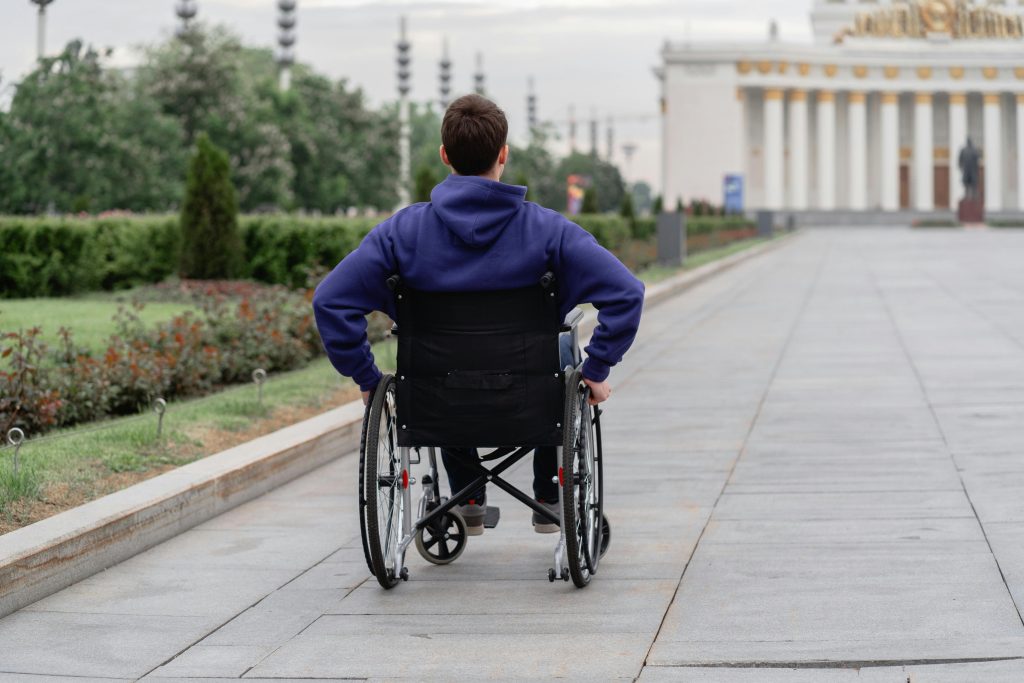Living with a disability can present many challenges, but the UK offers a range of support options for individuals with disabilities, including grants for disabled UK 2025. These grants aim to reduce the financial burden of disabilities and provide individuals with the opportunity to live more independently. Whether you are seeking financial help for medical expenses, adaptive equipment, or general living costs, there are various programs available to assist you.
This guide will walk you through the available UK disability grants, the application process, and the resources that can help you navigate the system. If you or a loved one is living with a disability and in need of financial support, understanding the options available is the first step to gaining the assistance you deserve.
Why Seek Financial Grants for Disabled Individuals?
Financial grants are a form of non-repayable assistance provided by the government, local authorities, or charitable organizations. For individuals with disabilities, these grants can help cover costs that would otherwise be unaffordable, such as medical treatments, home modifications, or specialized equipment. The goal is to ensure that all individuals, regardless of their physical or mental limitations, can participate fully in society.
Moreover, financial help for disabled UK is not just about covering immediate costs—it’s about promoting long-term independence and improving quality of life. Whether you’re seeking assistance for daily living or support for mobility aids, there are options available to ensure that disabled individuals can live with dignity and comfort.
Types of Financial Help Available for Disabled Individuals in the UK
In the UK, there are several types of grants and financial assistance available to disabled individuals. Some are offered by the government, while others are provided by charitable organizations or local councils. Here’s a breakdown of some of the most common types of financial help for disabled individuals:
1. Disability Living Allowance (DLA) and Personal Independence Payment (PIP)
For individuals with disabilities, Disability Living Allowance (DLA) and the Personal Independence Payment (PIP) are key financial support programs. These payments help cover the additional costs that result from living with a disability.
- Disability Living Allowance (DLA): Available for children under the age of 16 with disabilities, DLA can be used to cover the costs of care and mobility needs.
- Personal Independence Payment (PIP): For individuals aged 16-64, PIP is designed to help cover the cost of daily living and mobility needs. It is intended for those who have long-term health conditions or disabilities and can be used to fund a variety of costs related to living with a disability.
These payments are tax-free and can be used for any purpose, such as paying for carers, transportation, or home modifications.
2. Blue Badge Scheme
While not a financial grant, the Blue Badge Scheme is a valuable program that provides parking benefits for individuals with mobility difficulties. With a Blue Badge, disabled individuals can park in designated parking spaces closer to their destination, helping them save time and avoid the physical strain of walking long distances. The Blue Badge also provides access to other parking privileges in specific areas.
3. Disabled Facilities Grant (DFG)
The Disabled Facilities Grant (DFG) is available to help individuals with disabilities make necessary changes to their home, such as installing ramps, widening doorways, or making bathrooms more accessible. This grant is particularly valuable for individuals who require modifications to live independently or with less difficulty.
The DFG is offered by local authorities, and the amount of financial support can vary depending on the individual’s needs and income. The maximum amount available for a DFG is £30,000, but this can be higher in certain circumstances.
4. Access to Work Scheme
The Access to Work Scheme provides financial assistance to help individuals with disabilities succeed in the workplace. This grant can cover the costs of specialized equipment, transportation to and from work, and support workers or personal assistants. It is aimed at supporting individuals who want to enter or remain in employment, ensuring that the workplace is accessible and accommodating for everyone.
To apply for Access to Work, applicants must be employed or offer self-employment services. This program can be especially useful for individuals who require specific modifications or adjustments to carry out their job effectively.
5. Carer’s Allowance
If you are a carer for a disabled person, you may be eligible for Carer’s Allowance. This payment is available for individuals who spend a significant amount of time caring for someone with a disability. It is intended to help ease the financial burden of caregiving and is available to those who provide regular care for at least 35 hours per week.
The amount of Carer’s Allowance varies depending on your circumstances, but it can be used for anything from covering the cost of caring to supporting other aspects of your daily life.
6. Charitable Grants
In addition to government-funded support, there are numerous UK disability grants available through charitable organizations. These grants may be one-time payments or ongoing financial support, depending on the organization. Charities such as The Disabled Living Foundation and Turn2us offer financial help and advice on a range of topics, including mobility aids, daily living, and assistance with medical expenses.
Charitable grants can also be sector-specific, such as those designed for people with visual impairments, hearing impairments, or other specific conditions. If you’re unsure where to find charitable support, it’s worth reaching out to a disability advocacy organization for guidance.
How to Apply for Disabled Grants in the UK
Applying for disabled grants UK can feel overwhelming, but the process is generally straightforward once you know where to look and what to expect. Here’s how to get started:
1. Research Available Grants
The first step is to research the types of grants and financial support that you may be eligible for. Websites like Gov.uk and Turn2us provide comprehensive lists of financial assistance programs for disabled individuals. You can also inquire with your local council or disability organizations for additional options that may be available in your area.
2. Check Eligibility Requirements
Each grant or financial aid program has specific eligibility criteria, such as age, income level, or disability type. Carefully read through the requirements before applying to ensure you qualify. Some programs may require documentation from your doctor or healthcare provider to verify your condition.
3. Prepare Your Application
Once you’ve found the right grants and verified your eligibility, gather all necessary documentation, including proof of your disability, income, and any other supporting documents. For example, the Disabled Facilities Grant may require an assessment of your home, while PIP applications need detailed information about your daily living needs.
4. Submit Your Application
Follow the instructions provided by the grant program or financial support organization. Many programs allow you to apply online, while others may require you to submit physical copies of your application. Make sure to double-check your application for accuracy before submitting it.
5. Wait for Approval and Funding
After you’ve submitted your application, the reviewing body will assess your eligibility and decide whether to approve your application. Depending on the program, you may receive a decision in a few weeks or a few months. If your application is successful, you will be notified of the amount of funding awarded and how it will be paid.
Conclusion
There are many options for financial help for disabled UK residents, and understanding the available UK disability grants can make a significant difference in improving your quality of life. Whether you’re seeking assistance for daily living, home modifications, or support in the workplace, there are grants and support programs that can ease the financial burden associated with living with a disability.
By thoroughly researching the available programs and carefully following the application process, you can ensure that you receive the financial help you need. If you’re unsure where to start, don’t hesitate to reach out to a disability support organization or government agency for guidance.
Remember, there are resources available to help you live as independently and comfortably as possible, so don’t hesitate to explore your options for how to apply for disabled grants UK today.


